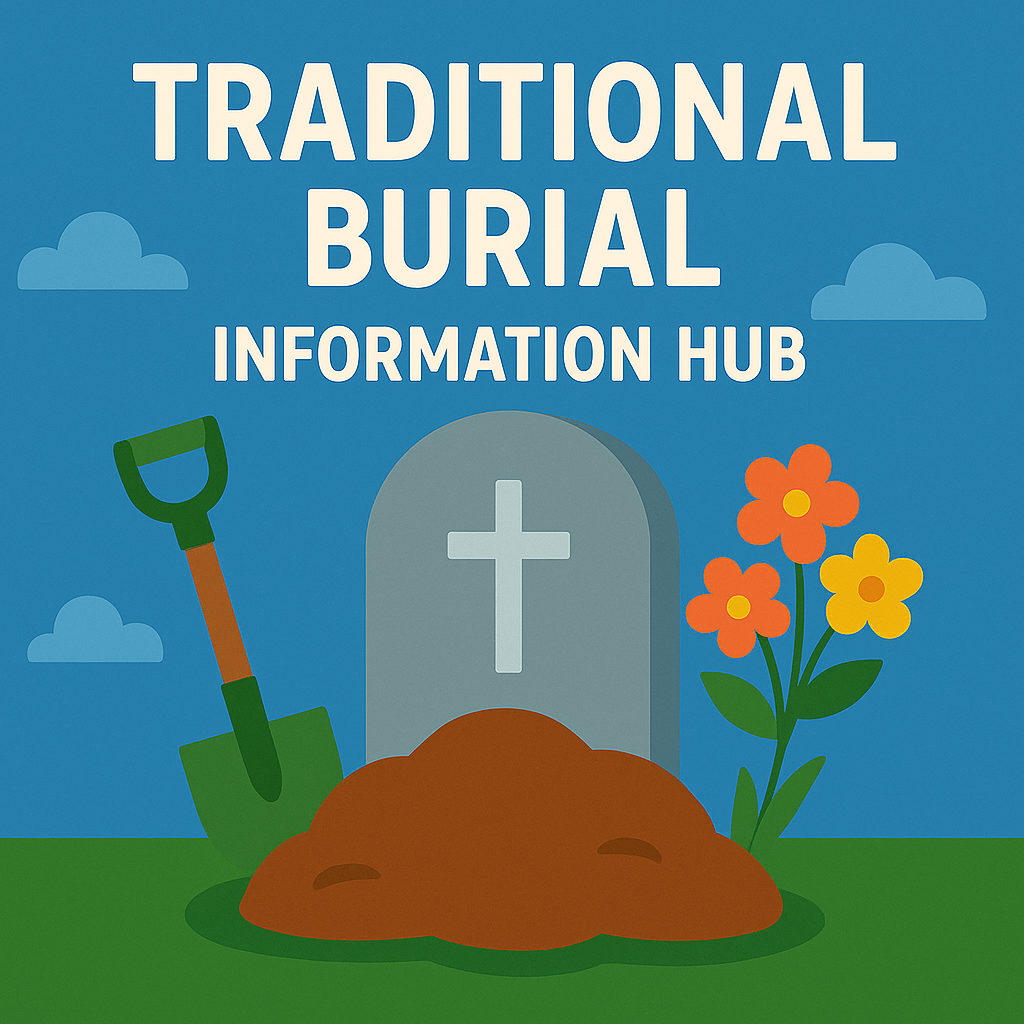The Traditional Burial Information Hub
While true traditional burial goes back to the practices of our ancestors who laid their loved ones to rest in natural settings like caves or simple earthen graves, the modern traditional burial has evolved into a comprehensive and ritualistic process. Today it encompasses time-honored customs within structured frameworks, such as funeral homes and established cemeteries, offering a blend of cultural respect, emotional support, and practical guidance.

Key Things To Know
Modern traditional burial involves more than just choosing a casket and cemetery. Here are a few of the most important things to keep in mind.
-
Modern traditional burial includes several steps. From funeral home arrangements to graveside services and cemetery selection, traditional burial typically involves a coordinated series of events that follow cultural or religious customs.
-
Planning ahead helps ease emotional and financial stress. Pre-planning or making your wishes known can significantly reduce the burden on loved ones and ensure your preferences are honored.
-
Cemetery choice matters more than you think. Considerations include location, religious or cultural affiliation, perpetual care options, and future availability for family plots.
-
Burial costs can vary widely. Factors like casket selection, vault requirements, plot fees, and funeral services all impact total expenses. Many families are surprised by the full cost if they haven’t planned in advance.
-
Religious and cultural traditions shape the process. Some traditions require burial within a certain time frame or involve specific rituals, clothing, or handling of the body. Understanding these in advance can help guide decisions.
-
Legal paperwork is part of the process. Death certificates, burial transit permits, and cemetery deeds are just a few of the documents involved. Knowing what’s required avoids delays or confusion.
-
You can personalize a traditional burial. From music to readings to custom caskets or headstones, there are many ways to blend tradition with personal touches.
Articles
Frequently Asked Questions
Disclaimer: The information provided on this website and by Buried in Work is for general informational purposes only and should not be considered legal advice. Please consult with a qualified attorney or subject matter expert for advice specific to your situation.




